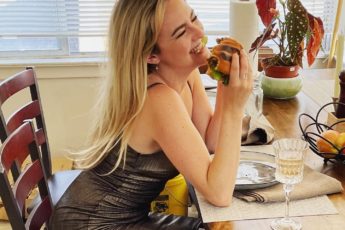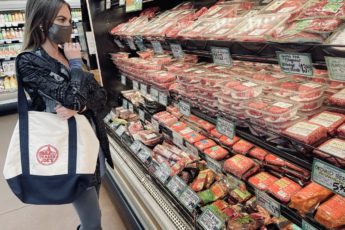One of the most exquisite, versatile, and easy foods to make and add to any meal, the egg. But how do we get them?
Cage-free, free-range, pasture-raised. What does it all mean?
Before exploring this topic, I thought I was doing these birds a good service by buying egg cartons that state “cage-free” or “free-range.” I was confident I was making a considerate purchase. To my shock and disgust, I was tragically wrong, as I’m sure many of you are unaware too.
In doing my research, the more information I found, the more I realized you need a strong stomach. We could cover many areas in this issue, but for the sake of keeping this post concise and clear, I want to discuss these terms only.
I know terms like cage-free and free-range sound nice, but these are examples where companies are trying to manipulate people into thinking they’re treating their chickens humanely by using phrases with the word “free” in them. The chickens are anything but free.
I’m not going to post graphic images here because I don’t want people to turn a blind eye to this crucial issue and leave this page because the images may cause distress. So, instead, I’m going to use graphic-friendly images that I created to visually describe these terms.
I do, however, encourage you to look them up to see for yourself. As a warning, you will find them all to be severely disturbing.
If you don’t see any of these terms, cage-free, free-range, or pasture-raised, that means the egg label uses the cruelty practice of factory farming by putting chickens in cages where they will spend the rest of their short lives, all lined up next to each other called battery cages.
-
Battery cages: Less space than a single sheet of letter-sized paper (67 square inches) to stand.
 Hens are packed by the dozen into cages that give each bird less space than a single sheet of letter-sized paper (67 square inches) to stand. These chickens never see the light of day. It’s the most common method in the U.S. for confining chickens to produce eggs on an industrial scale. After being born in hatcheries, hens are sent to the battery cages to spend the remainder of their lives, which last for about two years.
Hens are packed by the dozen into cages that give each bird less space than a single sheet of letter-sized paper (67 square inches) to stand. These chickens never see the light of day. It’s the most common method in the U.S. for confining chickens to produce eggs on an industrial scale. After being born in hatcheries, hens are sent to the battery cages to spend the remainder of their lives, which last for about two years.
According to the Humane League, “These small, cramped, barren cages cause a host of negative physical and psychological impacts. The bones of laying hens grow brittle and easily broken, and their natural desires to scratch, explore, and nest are systematically denied.”
Not only is this inexplicably cruel and inhumane treatment, but this also causes psychological problems by preventing chickens from engaging in their natural behaviors and physical trauma since battery cages cause a wide array of debilitating physical conditions for chickens.
These horrendous conditions and practices should be stopped and outlawed.
-
Cage-free: A minimum of 120 square inches per bird indoors only.

Because of widespread awareness of the cruel and inhumane living conditions most chickens face, more companies are taking advantage of using terms like “Cage-Free” on their cartons. This is what it really means. Hens are required to have a minimum of 120 square inches per bird, and they will exclusively live indoors, typically in large barns.
So, imagine this. Stand on a slightly bigger normal sheet of paper. Look down at your feet, your space. That is your whole life. That’s it.
Sometimes the square inches per bird differs based on what certification program the company uses. A link to the different certification program requirements here from the Humane Society.
-
Free-range: At least two square feet of free-roaming outside pasture space.

This is, of course, a step up from cage-free in that these hens have the option to go outside; however, many hens do not wander outside their barns as doors are small, are only open for limited times, or don’t accommodate the entire flock. They are required to have at least two square feet of free-roaming outside pasture space. Different farms may allow fewer or more inches of space for their chickens, however, outside space is still limited.
-
Pasture-raised: A minimum of 108 square feet per bird to roam free.

That’s right. These hens enjoy a minimum of 108 square feet per bird to roam freely, forage grass, go outside year-round and are never given antibiotics.
Recently, I discovered the brand Vital Farms, and they are changing the whole egg industry!
They work with small family-run farms and have their own operations, which is how they’re the only company to receive a pasture-raised designation from Certified Humane.
The Vital Farm hens spend the daylight hours outside—where they’re rotated from pasture to pasture. And then they’re gathered up at night to sleep in hen houses to stay safe from predators. You must visit their wonderful website at vitalfarms.com.
Vital Farms is one of the best, if not the best, given their impressively detailed website showing just where their eggs are laid and how they treat their chickens.
However, there are many other pasture-raised brands you can pick up at any local grocery store.
If there is one thing I want you to take away from this post, please buy pasture-raised eggs. They are treated the most humane and able to live a normal, healthy birdie life. After all, that is what we all hope for.
You may pay a few extra dollars for pasture-raised eggs, but you can’t put a price on the quality of life. It’s the cheaper options that will bury us all in the end. Buying pasture-raised eggs are better for the longevity of these beautiful birds and for the food we love.
Put your money where your heart is. Have some consideration and compassion. Our feathered friends deserve to live a fulfilling life.
In light of this article, I found some fun and fascinating egg quotes.
Enjoy.
SSxx
“The egg is the symbol of perfection.” – Mason Cooley, a world literature professor.
“It may be the cock that crows, but it is the hen that lays the eggs.” – Margaret Thatcher, former U.K. Prime Minister.
“Remember, people will judge you by your actions, not your intentions. You may have a heart of gold, but so does a hard-boiled egg.” – Maya Angelou, an American poet and civil rights activist.
“A day without an argument is like an egg without salt.” – Angela Carter, an English novelist.
“Probably one of the most private things in the world is an egg until it is broken.” – M. F. K. Fisher, an American food writer.
“The sky broke like an egg into full sunset and the water caught fire.” – Pamela Hansford Johnson, an English novelist, playwright, poet, literary and social critic.
“Words and eggs must be handled with care. Once broken they are impossible things to repair.” – Anne Sexton, an American poet.







Karl Journey
April 7, 2021 10:50 pmPasture raised is the GOLDEN STANDARD!
Linda
April 12, 2021 8:11 amToEgg or not toEgg , isn’t really the question but how?? 🥰
Shelley
April 21, 2021 9:32 amAwww those poor chickens! I had no idea what all the different terms meant! Thank you!!